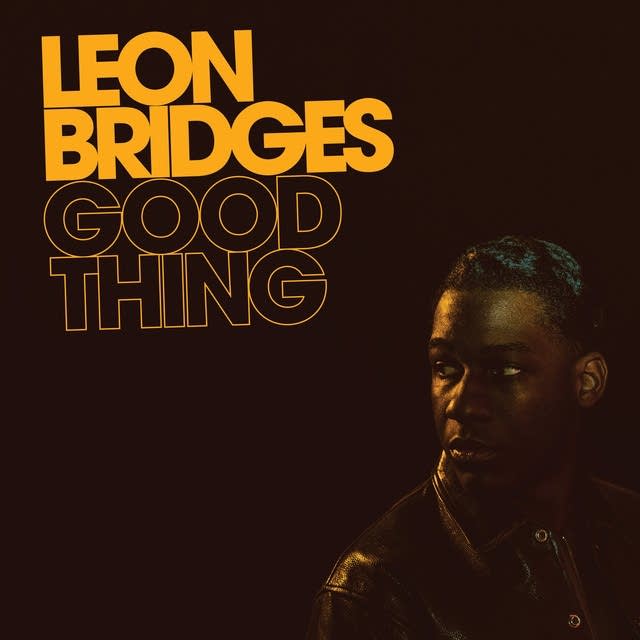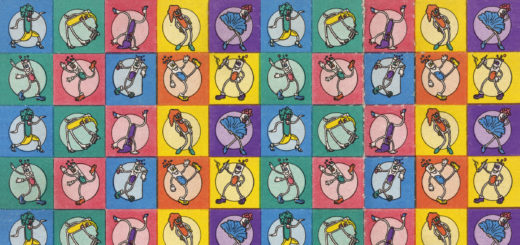GOOD THING by Leon Bridges

Genre: Neo-Soul
Favorite Tracks: “Bet Ain’t Worth the Hand,” “Shy,” “Forgive You”
How does one properly pay homage to their influences, while simultaneously pushing forward into new territories? I wouldn’t be surprised if (former) soul traditionalist Leon Bridges faced this exact question and quandary after his breakout 2015 release, COMING HOME, which was undoubtedly a solid soul and gospel album in its own right. The question upon returning to listen to it in anticipation for GOOD THING, however, was: what did Bridges do on that project to set himself apart from those who had already established the genre? He seemed to revel in his influences a bit too much, not letting himself truly find his own voice. On his latest album, Bridges seems set on keeping the core of his sound squarely planted within the roots of soul and gospel while simultaneously seeking to update his sound to a more pop-oriented and contemporary flavor. This unfortunately leads to mixed results, but luckily, with enough solid instrumentation and musicianship by Bridges, he prevents it from being completely written off.
GOOD THING has a solid opening track in “Bet Ain’t Worth the Hand,” beginning with these fluctuating and twinkling piano chords that set the standard for the instrumentation throughout the rest of the album. The backing track which Bridges passionately sings over is extremely full and well-bodied, planted squarely in the ‘50s, and while it’s nothing particularly original, it’s executed perfectly. Unfortunately on “Worth the Hand,” as well as the rest of the album, Bridges never saying anything particularly profound or noteworthy as he plays to the soul staples by focusing on love and longing—it works, but is sorely lacking in originality. As the album goes on, Bridges begins to skirt away from his established sound by branching out with vocal inflections and stylings that draw upon contemporary R&B. There are moments where this works, such as on “Shy,” where the beat becomes far more withdrawn, the backbone of the track being a really solid bass riff that repeats throughout. This allows Bridges to really shine, taking full command of the song rather than becoming enveloped by the soundscape and lyricism. It’s a mature and somewhat awkward depiction of a loving relationship: “I just want to see you, you could come over / I know ya shy, you can be shy with me.” While there is nothing particularly fresh being sung, Bridges’ execution leaves the song feeling quite intimate and wholesome.
This reserved execution doesn’t last long, with the following track “Beyond” going full-on shmaltz. The use of acoustic guitar is added to the insipid songwriting: “Will she have my kids? / Will she be my wife? / She might just be my everything and beyond.” It leaves an all too familiar blandness left by singer-songwriters from the 2000s such as Jack Johnson, who are just so utterly inoffensive it becomes offensive to the ears. The ideas behind the song are at least noteworthy, as one does not hear many young musicians diving into the ideas of long-term relationships, often focusing upon either flings or hookups; for Bridges to choose to have a more mature and adult topic on this track and others is commendable despite the, at times, cheesy and melodramatic execution.
This in turn creates the biggest issue for Bridges on GOOD THING: his trouble balancing the lovey-dovey songwriting with his obvious attempt at more mature themes. The stronger cuts of GOOD THING are those that go for a far more reserved and darker tone, such as the follow up to “Beyond,” “Forgive You.” Much like on “Shy,” the twangy bass guitar does wonders with Bridges’ soulful and emotional vocal stylings. The use of acoustic guitar closing out “Forgive You,” unlike the similar sound on “Beyond,” gives the track so much more emotional depth, leaving it far more sorrowful and immersive rather than feeling stale and sugary sweet. The short, 34-minute album’s final tracks end on a mixed note. On one hand there is the downright divulgent yet sensual “Mrs.,” where Bridges commands quite the presence by unceremoniously belting out “You know that I think you’re the love of my life.” It’s a bit cheesy, but the nostalgic sound, in addition to his vocal delivery, leaves it not feeling too bogged down. On the other hand, there is the strangely composed “You Don’t Know,” a piece of disco revival. Bridges reaching into his upper vocal register while being accompanied by prominent electric keyboard samples leaves it feeling quite dated.
GOOD THING, like the name implies, does have some good things going for it. It seems to be the product of a young artist attempting to fine-tune his sound with some mixed results overall. While there are moments that the experimentation works, where Bridges is able to bridge the gap between the sound he established so well on COMING HOME with that of his contemporaries, there are also cuts where Bridges picks up sounds and stylings that were, for good reason, left on the cutting room floor decades ago. All in all, it leaves GOOD THING feeling like a mixed bag, and while it has its fair share of flaws, there are some downright groovy and infectiously catchy songs, making it a worthy quick pass to cherry-pick the standouts.
Verdict: Recommend



